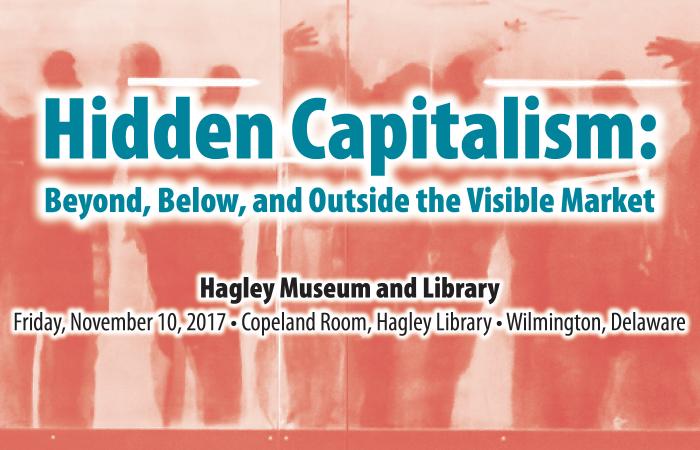
2017 Fall Conference
Hagley Library, 298 Buck Road, Wilmington, DE
In reviving the study of capitalism, scholars have emphasized the transformative power of markets and commodification. Yet, a crucial part of what drives capitalism falls outside of waged relations and formal, visible exchange.
This conference explored the substantial economic activity that occurs on the margins and in the concealed corners of the formal economy. These activities may be hidden or take place in “markets” that are not defined or measured by the normal terms we use to define and measure markets. Uncovering these forgotten or obscured activities can focus new attention on the mutual dependency of the visible and invisible markets and how the moralities of such markets both converge and diverge.
The conference was initiated by Lisa Jacobson and Ken Lipartito, and they are joined on the program committee by Roger Horowitz (Hagley Museum and Library) and Wendy Woloson (Rutgers University). It was held in the Copeland Room at Hagley Library.
